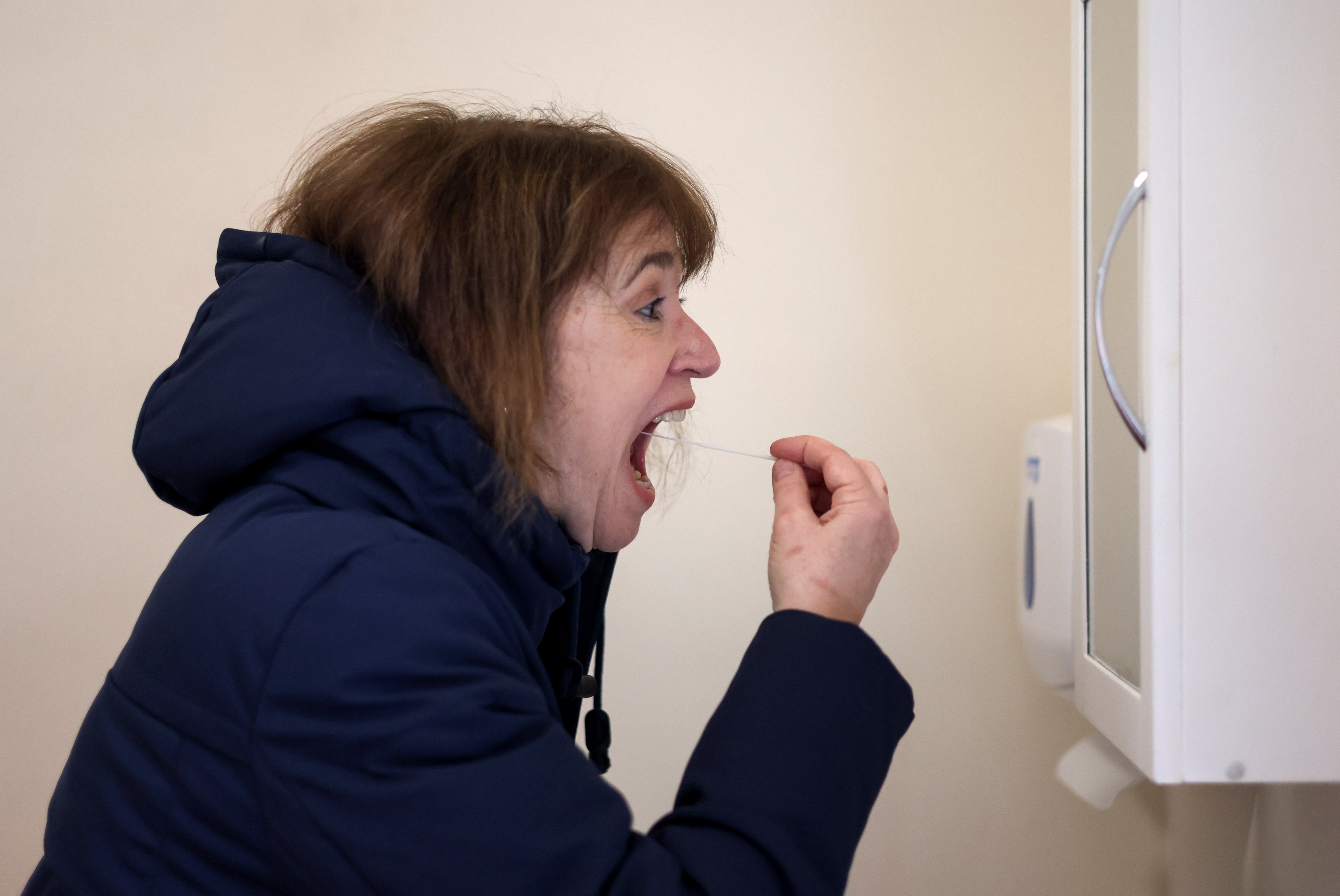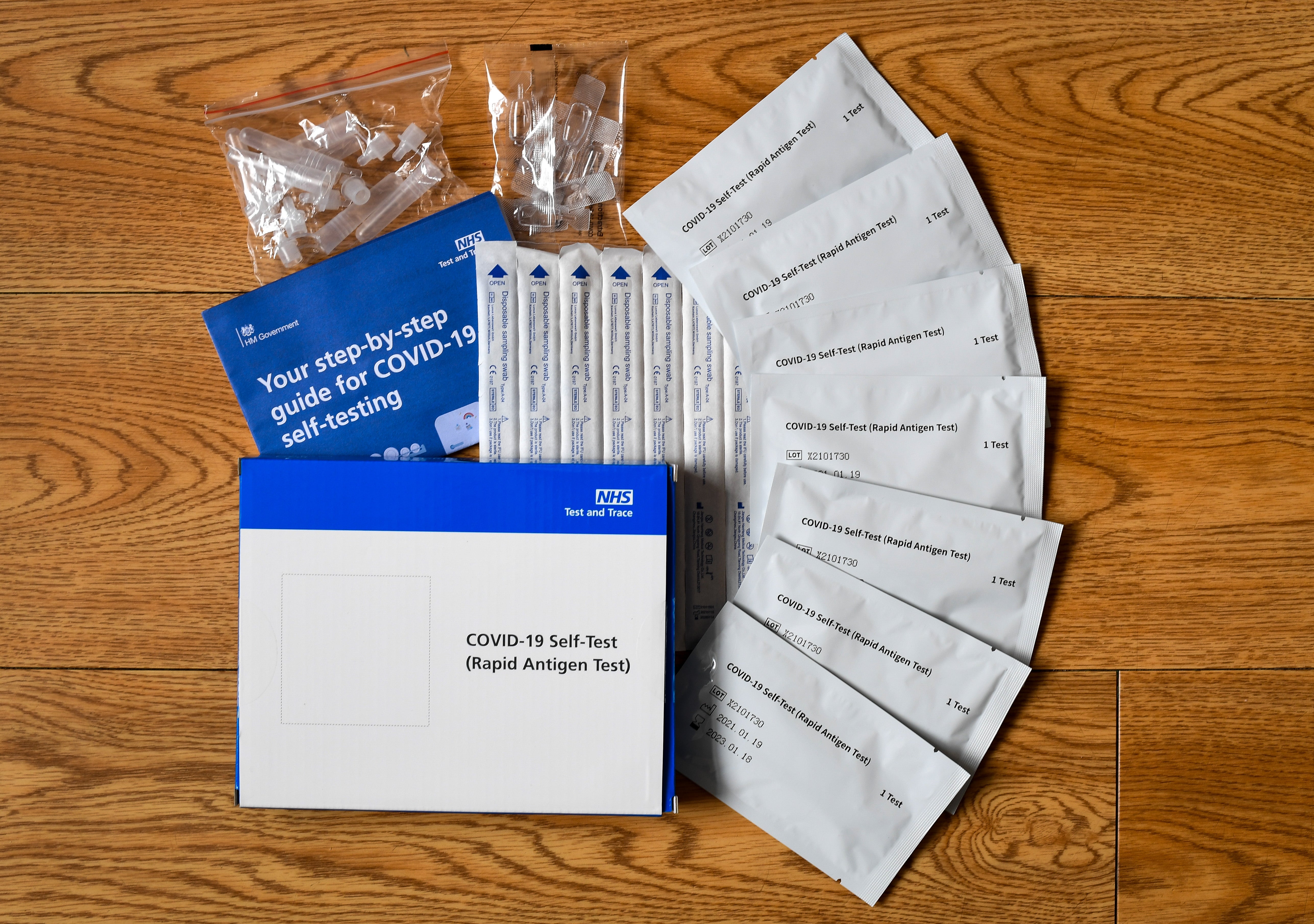‘I feel so much safer now’: How rapid Covid tests are helping get life moving again

Like millions of people across the UK, rapid Covid testing has become part of the weekly routine for Kate and Richard Melling and their two teenage children.
Neither Ms Melling, an assistant head at Grimsby primary school, nor her husband, clinical lead of a mental health in-patient unit, has been able to work from home during England’s lockdown.
So regular testing has enabled them to continue in their jobs while staying as safe as possible.
Around one in three people who have Covid-19 have no symptoms and could be spreading it without knowing, so testing is a critical tool to safeguard the population and stop the spread of the virus as sections of society are opened up.
Millions of people have already experienced regular rapid testing across workplaces, the NHS, and schools.
By having rapid tests twice a week, the public can help stop the spread of Covid-19 as we get life moving again.
“I feel so much safer at school now I know that the staff are being tested twice a week,” Ms Melling said. “I know they will self-isolate if they test positive and this will keep the rest of the school community a little safer.
“It is all so reassuring and this, combined with the vaccine rollout, is making us feel that there may be a little bit of ‘normal’ on the horizon.”
Vaccination and regular rapid testing work hand in hand. As vaccines are rolled out, regular rapid Covid-19 testing continues to be vital to find cases among individuals with no symptoms.
And it’s also vital to remember to report your test result - whether positive, negative or even void - at gov.uk/report-covid19-result or call 119.
It is essential that everyone continues to follow national guidance and restrictions whether they have had the vaccine or not.
Not everyone is protected by the vaccine and no vaccine offers full protection and scientists still do not yet know the full impact of the vaccine on transmission of the virus.

So even after you have had both doses of the vaccine, you may still give Covid to someone else and transmission will then continue.
This means it is important to: continue to follow social distancing guidance, wear a face covering and remember hands, face, space and the value of fresh air.
Kate Krzywiec, a physiotherapist from Oxfordshire, has continued working throughout the pandemic, including treating professional jockeys at the Cheltenham Festival.
“It is important to try and minimise the risk of people without symptoms spreading this horrible virus,” she said.
“Understanding that I can test myself regularly gives me the confidence to know that I’m not infected but without symptoms and won’t be responsible for spreading the virus.”
Geoff Pearce, a secondary music teacher from north London, has been testing twice weekly since returning to teaching at school on 8 March.
“The first time it took me half an hour figuring out how to do it, but now it’s like brushing my teeth,” he said. “I can do it in a flash, as part of my routine.
“The main thing is it makes me feel safer and more comfortable going between work and home.
“We are still social distancing and wearing masks, but knowing that my colleagues and pupils are all doing the same tests reassures me in the workplace and gives me more peace of mind – especially with my wife being pregnant.”
Rapid tests are easy to take with results in around 30 minutes. They are now available to parents and support bubbles of school children and those who can’t work from home.
People in those groups are being urged to get tested twice a week. Test packs can be collected from a test site, at work where available, or they can be ordered online.
To find out if you’re eligible and to get more information on how to get a Covid-19 test visit gov.uk/getting-tested-for-coronavirus.